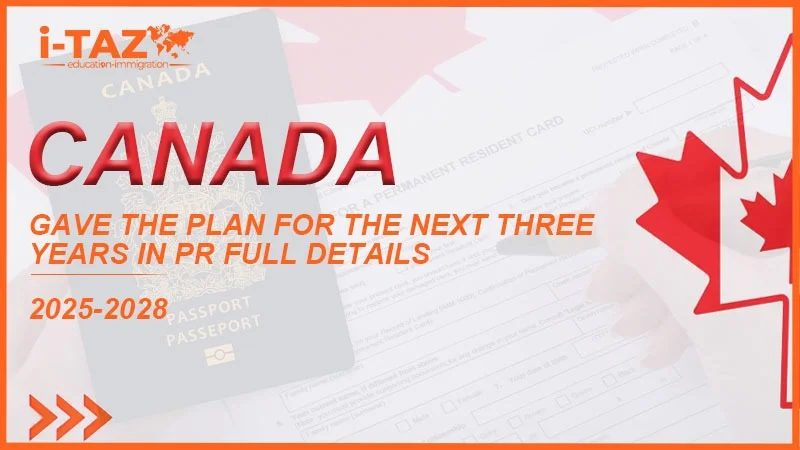Studying in the USA is a dream for many students worldwide, including students from Pakistan. The allure of world-class education, exposure to diverse cultures, and access to state-of-the-art facilities draws thousands of students every year. However, adjusting to a new country and education system, especially one as dynamic and challenging as the USA, can be daunting. Your first year as an international student sets the foundation for your entire academic journey, and how well you adapt can greatly affect your success.
This guide will provide you with essential tips to ensure you not only survive but thrive during your first year of studying in the USA, particularly if you’re studying in the USA from Pakistan.

1. Prepare Before You Arrive
Preparation is key to a smooth transition. Before leaving Pakistan, ensure you have completed all the necessary paperwork, including your student visa (F-1 visa for academic programs), I-20 form (Certificate of Eligibility for Nonimmigrant Student Status), health insurance, and flight arrangements. It’s also important to familiarize yourself with the local customs, weather conditions, and the campus where you’ll be studying.
If you’ve been accepted into a university or college, get in touch with the international student office. They can help you with housing, academic advising, and orientation programs.
Additionally, try connecting with other Pakistani students or alumni who have previously studied in the USA. Platforms like LinkedIn, Facebook groups, or university forums can be invaluable in providing firsthand advice and reducing your anxiety before the move.
2. Adjust to Cultural Differences
One of the most significant challenges when you study in the USA from Pakistan is adjusting to the cultural differences. The USA is a melting pot of cultures, and you will encounter students and faculty members from various ethnic and cultural backgrounds. Here are a few tips to help with cultural adjustment:
Be Open-Minded: American culture emphasizes individualism, personal space, and independence. People might seem more direct and open in their communication. Don’t be surprised if they speak their mind and expect you to do the same in academic and social settings.
Understand the Classroom Dynamics: The teaching methods in the USA might differ from what you are used to in Pakistan. Classrooms in the USA encourage active participation, discussions, and debates. Be prepared to share your opinions and ask questions. Professors expect students to engage actively during lectures.
Build Cross-Cultural Friendships: Don’t just limit yourself to Pakistani friends. While it’s comforting to have a support system from your home country, make an effort to meet students from other countries. Building a diverse network can enhance your understanding of different cultures and make your experience more enriching.
3. Master Time Management
Studying in the USA involves managing multiple tasks, including attending classes, completing assignments, working part-time (if you are on a student visa that allows it), and participating in extracurricular activities. Time management is essential to balancing your academic and personal life.
Create a Schedule: Break down your daily tasks and assignments into manageable chunks. Use apps like Google Calendar or Trello to organize your study time, assignment deadlines, and social activities.
Prioritize Tasks: Focus on important tasks first, such as preparing for exams or submitting assignments on time. Prioritization ensures you don’t get overwhelmed by the workload.
Set Goals: Set both short-term and long-term academic goals. Whether it’s acing a particular subject or maintaining a high GPA, having clear goals helps keep you focused and motivated.
4. Take Advantage of Campus Resources
Most universities in the USA offer a wide range of resources to help international students succeed academically and socially. As a student studying in the USA from Pakistan, you should familiarize yourself with these resources:
International Student Office: This office is specifically designed to help international students navigate life in the USA. They can assist with visa-related questions, health insurance issues, cultural adjustment, and more.
Academic Advising: Most universities provide academic advisors to help you select your courses, ensure you meet your degree requirements, and provide guidance if you’re struggling academically.
Tutoring Centers: Many universities offer free tutoring services for various subjects. If you find yourself struggling with a course, don’t hesitate to seek help.
Health and Counseling Services: Adjusting to a new country can be stressful, and mental health is just as important as physical health. Most universities provide counseling services to help students cope with stress, homesickness, or personal challenges.
5. Be Proactive in Academics
Academic expectations in the USA are high, and students are expected to take responsibility for their learning. To succeed:
Attend Classes Regularly: In the USA, attendance often plays a crucial role in your final grade. Be punctual and make sure to attend all lectures and labs.
Participate in Class Discussions: Professors appreciate active participation. Engage in discussions, ask questions, and be open to different perspectives.
Build Relationships with Professors: Don’t hesitate to attend office hours to seek help or discuss your academic progress. Building rapport with your professors can also be beneficial when you need recommendations for internships or scholarships.
Complete Assignments on Time: Unlike in Pakistan, where the education system might be more exam-oriented, American universities focus on continuous assessment. Ensure that all assignments, essays, and projects are submitted on time.
6. Budget Wisely
Living costs in the USA can vary depending on your location. Major cities like New York and San Francisco are more expensive, while smaller towns or cities may be more affordable. As an international student, you must budget wisely to avoid financial stress.
Track Your Expenses: Use apps like Mint or YNAB to keep track of your daily, weekly, and monthly expenses. This will help you stay within your budget and avoid overspending.
Look for Part-Time Jobs: Many universities allow international students on an F-1 visa to work up to 20 hours a week on campus. These part-time jobs can help you earn some extra money to cover living expenses.
Take Advantage of Student Discounts: Many stores, restaurants, and transportation services offer discounts to students. Always carry your student ID and ask if they offer a discount.
7. Stay Healthy
Taking care of your health is essential, especially when adjusting to a new environment. The stress of studying in a foreign country, combined with academic pressure, can take a toll on your health if you’re not careful.
Exercise Regularly: Most universities have gym facilities that are free for students. Engage in physical activities like jogging, swimming, or yoga to keep your body and mind healthy.
Eat Balanced Meals: It can be tempting to rely on fast food, but try to maintain a balanced diet. If you’re missing Pakistani food, many cities in the USA have grocery stores that sell Pakistani ingredients, allowing you to cook your favorite dishes at home.
Manage Stress: Studying abroad can be stressful, but it’s important to find ways to unwind. Whether it’s meditation, reading, or spending time with friends, find activities that help you relax.
8. Stay Connected with Family and Friends
While you will be immersed in your studies and social life in the USA, it’s important to stay connected with family and friends back home in Pakistan. Keeping in touch with loved ones provides emotional support and helps you feel grounded during challenging times.
Use Video Calls: Apps like WhatsApp, Skype, and Zoom make it easy to stay connected through video calls. Set aside time weekly or bi-weekly to check in with your family.
Share Your Experience: Sharing your experiences, both the good and the challenging ones, with your family and friends can help them understand your journey and offer support when needed.
9. Explore Opportunities Beyond the Classroom
Studying in the USA offers more than just an academic degree. Take full advantage of the opportunities available to enhance your learning and personal growth.
Join Student Organizations: There are plenty of clubs and organizations on campus related to your interests. Whether it’s cultural, academic, or sports-related, joining a club can help you meet new people and enrich your university experience.
Volunteer: Volunteering is a great way to give back to the community and gain experience. Many universities offer volunteer programs that can enhance your resume and build skills relevant to your career.
Internships: Many universities have strong ties to industries and offer internship programs that allow students to gain practical experience while studying. These internships are valuable not just for gaining experience but also for networking in your field of study.
10. Understand the Importance of Networking
Networking is an essential part of your success, both academically and professionally, in the USA. Building connections with peers, professors, and industry professionals can open up future opportunities for internships, jobs, and collaborations.
Attend Career Fairs: Most universities host career fairs where you can meet potential employers and learn about internship opportunities. Prepare your resume and practice your pitch before attending these events.
Leverage LinkedIn: Create a professional LinkedIn profile and connect with people in your field. This platform is widely used in the USA for job searches and networking, so maintaining an updated profile is important.
Conclusion
Your first year studying in the USA from Pakistan will be filled with exciting opportunities and challenges. By preparing before your arrival, adapting to the cultural and academic environment, managing your time and finances, and taking advantage of campus resources, you can set yourself up for success. Remember that this experience is not just about earning a degree but about growing personally, building relationships, and exploring new opportunities that will shape your future.
Success in your first year will depend on your ability to adapt, stay focused, and embrace the new experiences that come your way. With the right mindset and approach, your first year in the USA can be the beginning of an unforgettable journey.








